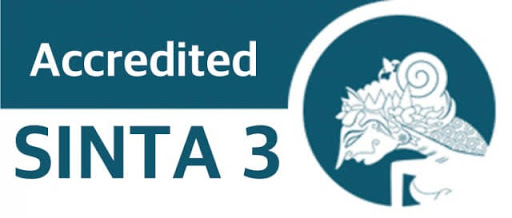Developing digital module for human literacy and technology literacy
DOI:
https://doi.org/10.12928/ijei.v1i1.2086Keywords:
digital module, learning management system, human literacy, technology literacy, development of students, introduction of biotechnology, industry revolution 4.0, literacy skillsAbstract
In the era of industrial revolution 4.0, many human activities depend on the gadget and the internet connection. We can observe the daily activities of human life right now. When they wake up in the morning, they usually start by using their handphones or gadget. This condition motivates educators to build a digital module in order to use the positive point of view of the Industry Revolution 4.0 era. In this chance, the researchers develop two topics that are very important for human life in Industry Revolution 4.0, whicht are, human literacy and technology literacy. Both of the topics were derived into two-courses. The course of development of students (Perkembangan Peserta Didik) will be representing the human literacy topics and the course of introduction to Biotechnology (pengantar bioteknologi) will be representing the technology literacy topic. The research is research and development. Furthermore, the products of this research are flipbooks that were uploaded on the Learning Management System managed by Universitas Ahmad Dahlan.
References
Damayanti, T. W., Subekti, I., & Baridwan, Z. (2015). Trust and uncertainty orientation: An effort to create tax compliance in social psychology framework. Procedia-Social and Behavioral Sciences, 211, 938-944.
Durden-Myers, E. J., Whitehead, M. E., & Pot, N. (2018). Physical literacy and human flourishing. Journal of Teaching in Physical Education, 37(3), 308-311.
Ferdianto, F., & Alfiani, N. (2019, October). Digital module and treffinger model: can improve mathematics ability. In Journal of Physics: Conference Series (Vol. 1360, No. 1, p. 012035). IOP Publishing.
Goodwin, A. P., & Jiménez, R. T. (2019). Literacy and human rights. Reading Research Quarterly, 54(4), 449-450.
Gunal, M. M. (2019). Simulation and the fourth industrial revolution. In Simulation for Industry 4.0 (pp. 1-17). Springer, Cham.
Hackett, A., & Somerville, M. (2017). Posthuman literacies: Young children moving in time, place and more-than-human worlds. Journal of Early Childhood Literacy, 17(3), 374-391.
Harahap, L. W., & Surya, E. (2017). Development of Learning Media in Mathematics for Students with Special Needs. International Journal of Sciences: Basic and Applied Research (IJSBAR), 33(3), 1-12.
Indriyanti, N. Y., & Susilowati, E. (2010). Pengembangan Modul. Surakarta: UNS Press.
Lin, M. H., & Chen, H. G. (2017). A study of the effects of digital learning on learning motivation and learning outcome. Eurasia Journal of Mathematics, Science and Technology Education, 13(7), 3553-3564.
Raihan, S., Haryono, H., & Ahmadi, F. (2018). Development of Scientific Learning E-Book Using 3D Pageflip Professional Program. Innovative Journal of Curriculum and Educational Technology, 7(1), 7-14.
Purnomo, D., Indrowati, M., & Karyanto, P. (2013). Pengaruh Penggunaan Modul Hasil Penelitian Pencemaran di Sungai Pepe Surakarta sebagai Sumber Belajar Biologi Pokok Bahasan Pencemaran Lingkungan terhadap Hasil Belajar Siswa. Jurnal Pendidikan Biologi, 5(1), 59-69.
Rosyidah, A. N., Sudarmin, S. S., & Siadi, K. K. (2013). Pengembangan Modul IPA Berbasis Etnosains Zat Aditif dalam Bahan Makanan untuk Kelas VIII SMP Negeri 1 Pegandon Kendal. Unnes Science Education Journal, 2(1).
Setiyadi, M. W. (2017). Pengembangan modul pembelajaran biologi berbasis pendekatan saintifik untuk meningkatkan hasil belajar siswa. Journal of Educational Science and Technology (EST), 3(2), 102-112.
Downloads
Published
How to Cite
Issue
Section
License
Authors who publish with this journal agree to the following terms:
- Authors retain copyright with the work simultaneously licensed under a Creative Commons Attribution License that allows others to share the work with an acknowledgement of the work's authorship and initial publication in this journal.
- Authors are able to enter into separate, additional contractual arrangements for the non-exclusive distribution of the journal's published version of the work (e.g., post it to an institutional repository or publish it in a book), with an acknowledgement of its initial publication in this journal.
- Authors are permitted and encouraged to post their work online (e.g., in institutional repositories or on their website) prior to and during the submission process, as it can lead to productive exchanges, as well as earlier and greater citation of published work (See The Effect of Open Access).




